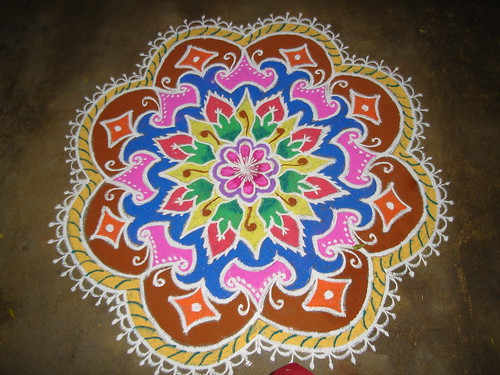Deepavali or Diwali is known as the
‘festival of light’, is a festival celebrated by Indian. The name Diwali or
Divali is a contraction of दीपावली (Dīpāvalī), translates into ‘row
of lamps’ that marks by four days of celebration which literally illumines the
country with its brilliance and dazzles all with its joy.
The origin of
Deepavali can be traced back to ancient India, when it was probably an
important harvest festival. But, there are various legends pointing to the
origin of Diwali or Deepavali. Some believe it is the celebration of the
marriage of Lakshmi with Lord Vishnu, and some believe the festival is
dedicated to the worship of Mother Kali, the dark goddess of strength.
In Malaysia, Diwali
festival is celebrated during the seventh month of Hindu solar calander. Is it
a federal public holiday throughout Malaysia. In many respects it resembles the
traditions followes in the Indian subcontinent. Open houses are held where
Hindu Malaysian welcome fellow Malaysians of different races and religions to
their house for a scrumptious meal. This is a practice unique to Malaysia and
shows the goodwill and friendly ties practiced by all Malaysians during any
festival occasion.
As Deepavali is the
celebration of light, all the ritual of Diwali has a significance story to
tell. The decoration of lights is an expression of obeisance to the heavens for
the attainment of health, wealth, knowledge, peace and prosperity.
some of Kolam/Rangoli design
While Rangoli, also
known as Kolam is a folk art from India. It is a decorative designs made on the
foors of living rooms and courtyards during Hindu festivals. The patterns are
typically created with materials including colored rice, dry flour, and colored
sand or even flower petals. The purpose of Rangoli or Kolam is it was thought
to bring good luck. The variety of design may reflect traditions, folkfore and
practices that are unique to each area. It is considered as an important part
of the spiritual process which purification of the spirit and the prosperity
that lies behind every purification process. As Kolam drawn by Indian women in front of their doors or
gates, it also represents a philosophy of life that enthusiastically
celebrates the impermanence of knowing and devotes to live in the present.
references: Dewali , Festival of light , Kolam




No comments:
Post a Comment